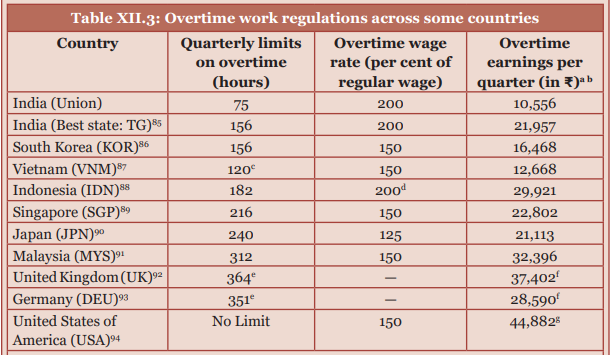

Bhubaneswar: When recently the country has witnessed a sort of turbulence over L&T Chairman’s 90-hour work week talk, the Economic Survey 2024-25 makes a big statement on the fissiparous debate.
It needs mentioning here that the Larsen & Toubro (L&T) Chairman S.N. Subrahmanyan sparked an outrage by his comment suggesting employees should work 90 hours a week and even on Sundays to remain competitive.
L&T Chairman’s this video surfaced on Reddit that drew a tonnes of flak on the platform and across social media.
As heard in the viral video, when asked why L&T required its employees to work on Saturdays, the Chairman said, “I regret I am not able to make you work on Sundays, to be honest. If I can make you work on Sundays, I will be more happy, because I work on Sundays also.”
His statement that had drawn maximum ire from all and sundry, including women celebrities like Twinkle Khanna is:
“What do you do sitting at home? How long can you stare at your wife? How long can the wives stare at their husbands? Get to the office and start working.”
ECONOMIC SURVEY MAKES BIG STATEMENT
Interestingly, amidst the ongoing debate over 70 –hour to 90-hour work week, the Economic Survey 2024-25 tabled in Parliament has made a statement that suggests of changing of the “Inflexible Labour Laws’ and vesting the power with the companies.
According to the Economic Survey 2024-25:
The Survey seems not in favour of Section 51 of the Factories Act (1948), which states No adult worker shall be required or allowed to work in a factory for more than forty-eight hours in any week. This clause limits the number of hours a worker can work in a day and a week.
The BIG statement the survey then made has been:
“India’s working hour regulations prevent manufacturers from meeting demand surges and participating in global markets. Manufacturers stay competitive by minimising the time to bring a product to the market.”
The Survey then stated:
“To reduce time-to-market, manufacturers must be capable of temporarily scaling up production. Labour laws in other countries allow manufacturers to average working hour limits across weeks and sometimes months. The International Labour Organisation (ILO) also recommends allowing manufacturers the freedom to average working hour limits across 3 weeks. However, India’s working hour limits may increase the cost, time, and risk of manufacturing.”
The survey bats for longer work hours weekly limit, which is evident from the statement made below.
“To reduce time-to-market, manufacturers must be capable of temporarily scaling up production. Labour laws in other countries allow manufacturers to average working hour limits across weeks and sometimes months. The International Labour Organisation (ILO) also recommends allowing manufacturers the freedom to average working hour limits across 3 weeks. However, India’s working hour limits may increase the cost, time, and risk of manufacturing.”
SEE the image below.
The survey has given a table to support its arguments. It says, unlike India, certain countries allow these caps to be averaged over multiple days and weeks.

A glance at the image reveals that in terms of weekly limits in hours, US has the least cap in the world with only 40 hrs in a week. However, in the yardstick of averaged over weeks, India turns out to be the lowest and US the highest.
ECO SURVEY BATS FOR LONGER WORKING HOUR LIMIT
Seemingly, in favour of longer working hours per week, the Survey said:

The Survey also spoke against the restrictions on overtime for factory workers under Section 65(3)(iv) of the Factories Act (1948) that states – No worker shall be allowed to work overtime for more than seven consecutive days, and the total number of overtime hours in any quarter shall not exceed seventy-five.